Hi-Fi Rush creator praised "good situation in our studio" and freedom of risk-taking a month before closure
"You don't want to feel like you have to make something specific just to survive."
Earlier this week, Microsoft announced the closure of a number of Bethesda studios, including Hi-Fi Rush developer Tango Gameworks. Directed by studio creative director John Johanas, Hi-Fi Rush was lauded for being a smaller, original game that went on to win a BAFTA at last month's awards.
Yet following the closure of Tango, head of Xbox Game Studios Matt Booty told Microsoft employees: "We need smaller games that give us prestige and awards," as per internal remarks shared with The Verge.
That's exactly what Hi-Fi Rush was. At the BAFTAs last month, Johanas told Eurogamer the game was "an intense labour of love" and there was a "good situation" at the studio due to the ability to take risks and own creative freedom.
"Last year we saw some of the best things produced, I think, in a long time, which is a mixture of massive innovation, massive scale, lots of teams coming together to make some of the biggest games to even the smallest games with huge impact," said Johanas. "And we shouldn't forget that those are teams that worked hard for years and years and years to make those games.
"For us, people still saw our game as a smaller game, but we worked hard on that for six years. It was an intense labour of love... I just want everyone to feel appreciated for the work they did."
When asked what he'd change about the games industry, Johanas said he believes the games industry should be more open to taking risks - after all, that's how Hi-Fi Rush was allowed to be created.
"We have a good situation in our studio, where we were granted a lot of creative freedom and were able to take risks," said Johanas. "I know some studios are not afforded that opportunity.
"Because we're able to take risks and try something new and different, we want to keep that but we also don't want the risk to be at the expense of a job risk. You should be able to take creative risks but have the means to say if something doesn't work.
"We're in an industry where there's so many games to play, you can't even play them all. But we want to find an audience, we want to find a way to make it sustainable - that you can try something new, you can be risky, and it may not be a 30m seller game but you can find your audience and it's still sustainable. We want to find that balance.
"Now the stakes are so much higher. You don't want to feel like you have to make something specific just to survive. You want to be able to create it and I don't want to lose that and that's the scariest thing."
He continued: "We saw things that you think would be slam dunks like established IP games as well not performing either. So people asked me the same thing: your game was a big risk, and I'm like: I don't think it's as risky as some of these $500m projects as well. I think that's also a major risk.
"I was just glad we got to produce a game that we wanted to make and it did find an audience."
Later that evening, Hi-Fi Rush won the BAFTA for animation after receiving nominations in five categories.
Johanas' comments, ironic in retrospect, highlight the risk-based nature of the games industry at all levels, ahead of Tango Gameworks' sudden shutdown.
As reported yesterday, the studio was reportedly working on a sequel.
Johanas shared The Verge's report on social media platform X with an image of Hi-Fi Rush character Peppermint - it's unclear if she would've been the focus of a new game, or if the image was used purely for her sad expression.
Hi-Fi Rush released last year to high critical acclaim. "Hi-Fi Rush is unashamed to be loud and brash and playful, and it's confident in its execution. On the surface it might seem frivolous but there's a deep battle system here that rewards combo memory and, of course, rhythm. It's upbeat, wide-eyed and unpretentious, but that's all part of its inescapable charm, a game that appeased my inner teen and rewarded musicality in equal measure. I had a blast," I wrote in Eurogamer's Hi-Fi Rush review.


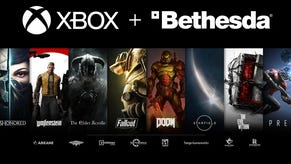
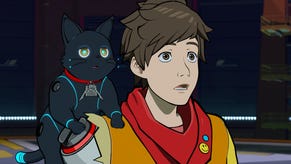
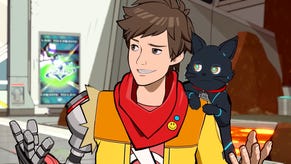


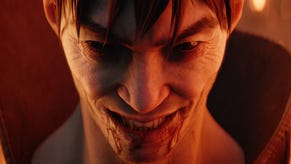


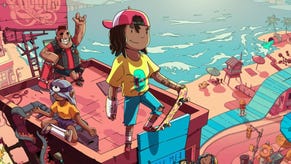




_9umpgD2.jpg?width=291&height=164&fit=crop&quality=80&format=jpg&auto=webp)
